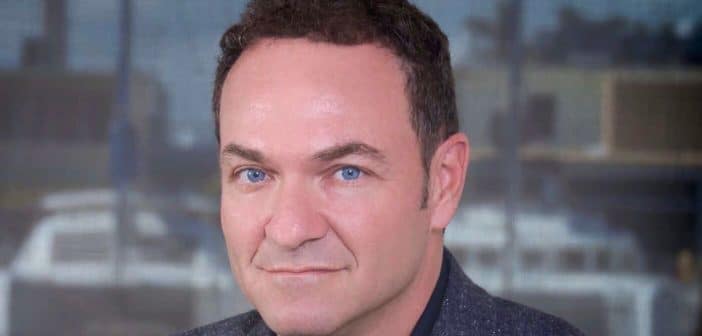 Recently, Paul Pellinger, the founder of Recovery Unplugged, was at a stoplight in his convertible. To his right was a woman driving a Prius adorned with Democratic-supporting bumper stickers. To his left was a pick-up truck with pro-Trump stickers.
Recently, Paul Pellinger, the founder of Recovery Unplugged, was at a stoplight in his convertible. To his right was a woman driving a Prius adorned with Democratic-supporting bumper stickers. To his left was a pick-up truck with pro-Trump stickers.
“I thought ‘Here are two very different people,’” Pellinger recalled. He decided to test a theory that has been behind his work as the founder of a unique music-based rehabilitation program: that music can cut through differences, pain and suffering in order to bring people together and promote healing.
Pellinger put on James Brown’s iconic song “I Feel Good,” and turned it up loud enough for both drivers to hear. Almost instantly they were both smiling and nodding along to the music.
“I pointed them out to each other. I said ‘Look at both of you. You’re both smiling and bopping your heads, looking at each other.’ I proved there that music can cut through everything else.”
It’s a theory that Pellinger has seen proven time and again as he helps clients battling addiction connect with recovery through music. In his recent book, Music Is Our Medicine, Pellinger talks about the healing power of music specifically for people confronting addiction. However, he believes that there are much broader applications.
“What’s misleading about that is that drug and alcohol abuse are a symptom of a bigger problem, and we have to heal the real core issues,” Pellinger said. “And those are the same issues we all deal with: distorted perception, negative self image, destructive behaviors.”
While most people might be able to handle these issues without turning to drugs and alcohol, people with substance use disorder rely on that particular coping mechanism.
However, using music to help heal can apply to everyone—whether it’s people with political differences at a stoplight or someone trying to get sober for good.
“The same defects that we all have as human apply to everybody,” Pellinger said. “Music has the ability to not only change how we confront those, but also help you retain healthier coping mechanisms.”
Pellinger wrote Music Is Our Medicine to share his own story with music, and how it led him to found a unique recovery approach that uses song to help clients connect with their treatment providers, deal with their past, and internalize recovery resources going forward.
The idea for Recovery Unplugged began when Pellinger examined his own recovery. He realized that music had been an important part of learning to live sober for more than two decades.
“Music has always been a large part of my life even though I’m not a musician,” he said. “It’s really a universal approach. There’s a reason why all religions use it in their services.”
At the same time that he was recognizing the power of music, Pellinger, a drug and alcohol counselor, was seeing the many ways that the traditional treatment industry was failing people who need help.
“I looked at the medical model in general in terms of unfortunately being a part of the problem of addiction,” he explained. “The different types of drugs that were used to help clients with their moods, with withdrawal, anxiety or pain… most of those medications are very addictive.”
Pellinger began to wonder if there was an alternative.
“My thought was ‘okay, so what else can help people with pain? With changing their mood? I realized music is a great thing that can be used to combat some of the other issues surrounding addiction. There are so many assets that music has, why not figure out a way to utilize the music as the medicine versus Xanax or Oxycontin?”
Pellinger’s hunch was right. In the five years since Recovery Unplugged opened its first treatment center, clients have had better completion rates compared to traditional treatment and have been more likely to stay sober long-term. The success of the program caught the attention of people in the industry, which ultimately led to Pellinger writing the book.
“People wanted to hear about the method of music as medicine,” he said.
He hopes that people in the recovery industry and those who are interested in alternative treatments will be able to learn from the book.
“The purpose was to appeal to everyone: the addict seeking treatment, the family member looking for ways to help, the clinician looking to provide better treatment, and members of the public who want to utilize music as form of meditation to be proactive for their own health,” Pellinger said.
Music Is Our Medicine is available for purchase on Amazon, and Pellinger invites anyone who is interested in learning more about this approach to contact him at paulp@recoveryunplugged.com.
Recovery Unplugged is a music-based rehabilitation and recovery center in Fort Lauderdale, Florida and Austin, Texas. Get more information at www.recoveryunplugged.com or connect on Facebook, Instagram, Twitter and YouTube
Photos provided by Recovery Unplugged; used with permission
Sponsored DISCLAIMER: This is a paid advertisement for California Behavioral Health, LLC, a CA licensed substance abuse treatment provider and not a service provided by The Fix. Calls to this number are answered by CBH, free and without obligation to the consumer. No one who answers the call receives a fee based upon the consumer’s choice to enter treatment. For additional info on other treatment providers and options visit www.samhsa.gov.




